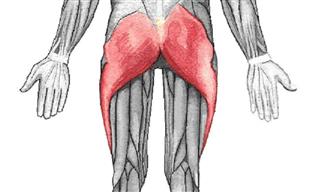Quality sleep is essential for our overall well-being. However, with the demands of modern life, achieving restful sleep can be challenging for many of us. Poor sleep impacts mood, immune function, cognition, appetite, and interpersonal connections. Just a few nights of poor sleep can weaken the immune system. Therefore, prioritizing and safeguarding our sleep is essential. Whether you struggle with falling or staying asleep, it's important to seek natural treatments.
Related: A Guide to Sleep Deprivation and Better Napping
Fortunately, several herbs offer potent benefits for promoting restful sleep. Some herbs, known as nervines, calm the nervous system directly, while others act as sedatives, triggering the "rest and digest" response. Many of these herbs are readily available, affordable, and may even grow in your garden. Here are six top herbs to aid sleep and relaxation.
1. Valerian root

Valerian root, native to Asia and Europe, has been used as a dietary supplement for insomnia and depression since ancient times. During World War II, valerian was even used to help relieve the stress caused by air raids on British soil. Today, it remains one of the most commonly used sleep-promoting herbal supplements in the European and US markets. This is because Valerian contains valepotriates, chemicals that seem to help sedate our nervous system.
Valerian is also known for its ability to support nervous tension, anxiety, and insomnia. It works by interacting with benzodiazepine (sleep) receptors and has an affinity for melatonin receptors, which promote sleep. Studies have shown that Valerian root can have a positive impact on the time taken to fall asleep. Furthermore, the studies concluded that taking the extract does not cause any side effects, such as morning drowsiness.
2. Chamomile

Chamomile tea is well-known for its ability to induce sleep and as a mild tranquilizer. It has been used as a natural remedy to reduce inflammation, improve symptoms of insomnia, and aid anxiety issues. The calming effects of chamomile tea are believed to be due to the presence of apigenin, an antioxidant that binds to specific receptors in your brain, resulting in decreased anxiety and better sleep. Additionally, chamomile has been shown to improve daytime functioning in insomniacs.
3. Passionflower

Passionflower is a medicinal nervine and sedative flower that is often used and recommended as a natural sleep aid. The petals and flower heads of the plant are used as herbal remedies to aid in falling asleep at levels that are comparable to sleeping pills, but without the unwanted side effects that accompany them. The reason for this may be due to passionflower's ability to increase blood levels of melatonin, a chemical that promotes sleep and relaxation.
4. Lavender

Lavender, like chamomile, is a common herb used for promoting relaxation. Having said that, lavender differs from other plants in terms of how it is consumed. What makes lavender special is its ability to enhance sleep quality without requiring internal consumption. Even diffusing a small amount of lavender essential oil in your bedroom can yield noticeable results. Research has shown that breathing in lavender's scent may enhance sleep quality. An in-depth review of 15 studies from 2014 found that breathing essential oils, particularly lavender, has a favorable effect on those with minor sleep problems.
5. Ashwagandha

The adaptogenic herb Ashwagandha may also be worth taking for sleep, as it reduces the fight or flight response and therefore promotes a more relaxed nervous system. Per a 2021 double-blind study, ashwagandha is quite effective for relieving insomnia, anxiety, and improving sleep.
Ashwagandha is available in a variety of forms, including powder, capsules, pills, liquid extract, and tea (usually with other soothing herbs).
Related: Difficulty Sleeping? Eat These Foods Before Bed
6. Hops

You might be surprised to know that hops, the main ingredient in beer, have a strong sedative property. Along with being bitter, they have a relaxing effect on our central nervous system. In a controlled study, hops and valerian were found to be effective in treating mild insomnia and were as effective as a sleeping pill. Another study found that hops support the circadian rhythm and promote a good night's sleep.
Adding hops to your diet can reduce the overactivity of your nervous system, increase your calming neurotransmitter (GABA), and impact your sleep-signaling transmitters (melatonin, etc.). They also have a pain-relieving effect, which can help those who find it uncomfortable to sleep. Although hop tea can be bitter, you can sweeten it with honey or maple syrup.
7. Skullcap

A native nervine herb, American skullcap (or Scutellaria lateriflora), has been used medicinally for centuries to treat symptoms that disturb sleep, such as anxiety and insomnia. In research studies, it has been shown that the flavonoids in the above-ground parts of the skullcap have natural sedative and antispasmodic effects on the nervous system, possibly acting as gamma amino butyric acid (GABA) agonists similar to benzodiazepines.
 Go to BabaMail
Go to BabaMail




























































